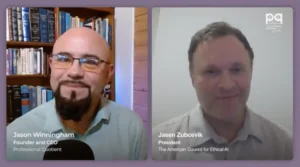US Consumer Confidence Hits 16-Month Low on Drag From Inflation
(Bloomberg) — US consumer confidence dropped in June to the lowest in more than a year as inflation continues to dampen Americans’ economic views.
The Conference Board’s index decreased to 98.7 from a downwardly revised 103.2 reading in May, data Tuesday showed. The median forecast in a Bloomberg survey of economists called for a decline to 100.
A measure of expectations — which reflects consumers’ six-month outlook — dropped to the lowest in nearly a decade as Americans grew more downbeat about the outlook for the economy, labor market and incomes. The group’s gauge of current conditions fell slightly.
As the Federal Reserve raises interest rates to curb price pressures, higher borrowing costs risk denting purchases for big-ticket items like homes, cars and appliances. Despite sagging sentiment, buying plans are so far holding up, the report showed.
The share of respondents who said they intend to buy a vehicle or major appliance in the next six months increased from a month earlier. At the same time, vacation plans, both domestic and internationally, softened, likely due to higher airfares and gas prices.
Consumers see prices in the next year rising at the fastest rate in the group’s data back to the 1980s. Separate data on inflation-adjusted consumer spending will be released Thursday.
“Consumers’ grimmer outlook was driven by increasing concerns about inflation, in particular rising gas and food prices,” Lynn Franco, senior director of economic indicators at The Conference Board, said in a statement.
“Expectations have now fallen well below a reading of 80, suggesting weaker growth in the second half of 2022 as well as growing risk of recession by yearend.”
What Bloomberg Economics Says…
“The widening gap between consumers’ present situation and their expectations of the future raises the risk of recession. Apprehension about the direction of the economy could increasingly influence consumer behavior, resulting in a downward spiral of slumping demand.”
–Eliza Winger, economist
Nearly 30% of respondents expect business conditions to worsen in the back half of the year, the largest share since March 2009, during the height of the financial crisis.
The figures reinforce data last week from the University of Michigan, which showed consumer sentiment in June remained near a record low. Respondents expect prices to rise in the next 12 months at nearly the fastest pace in 40 years.
The share of consumers who said jobs were “plentiful” decreased slightly to 51.3%, and six months from now, respondents were also more pessimistic. The most respondents since August 2020 see their incomes dropping in that time.
–With assistance from Chris Middleton and Maria Paula Mijares Torres.









